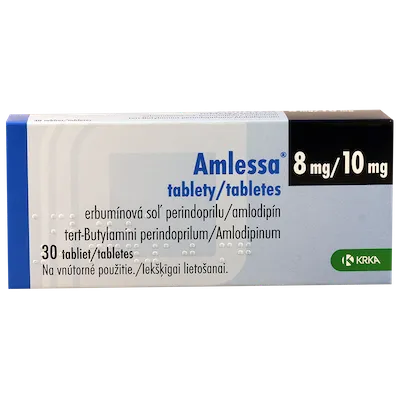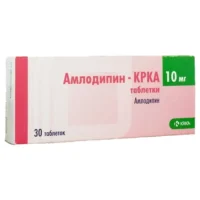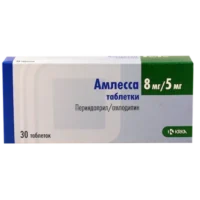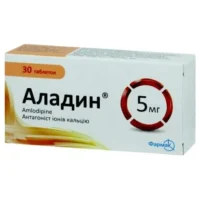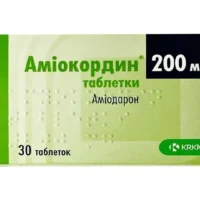Description
Amlessa (Perindopril tert-butylamine) Tablets 8 mg/10 mg. №30
Composition
Active ingredient: Perindopril tert-butylamine
Mechanism of Action
Pharmacological Effects: Perindopril is an angiotensin-converting enzyme (ACE) inhibitor that inhibits the conversion of angiotensin I to angiotensin II, a potent vasoconstrictor. This mechanism leads to vasodilation, decreased blood pressure, and enhanced cardiac function.
Indications for Use
Indicated for: Hypertension, heart failure, and post-myocardial infarction
Contraindications
Do not use if: History of angioedema associated with prior ACE inhibitor therapy
Side Effects
Common side effects may include dizziness, cough, and hypotension. Consult a healthcare provider for a complete list of possible adverse reactions.
Usage Instructions
- Take Amlessa tablets orally once daily, with or without food.
- Swallow the tablet whole with a full glass of water.
Benefits Compared to Analogues
Amlessa has shown efficacy in reducing blood pressure and improving outcomes in heart failure and post-myocardial infarction patients, as demonstrated in clinical studies.
Suitable Patient Groups
Amlessa is suitable for adult patients with hypertension, heart failure, or post-myocardial infarction. Dosage adjustments may be required for specific patient populations such as the elderly or those with renal impairment. Consult a healthcare provider for personalized recommendations.
Storage and Shelf Life
Store Amlessa at room temperature, away from moisture and heat. Keep out of reach of children.
Packaging Description
Each package contains 30 tablets of Amlessa (Perindopril tert-butylamine) Tablets 8 mg/10 mg.
Clinical Evidence and Proven Effectiveness
Clinical studies have shown: Perindopril, the active ingredient in Amlessa, to be effective in reducing blood pressure and improving outcomes in patients with heart failure and post-myocardial infarction.
Clinical Trials: Perindopril has demonstrated significant benefits in reducing cardiovascular events in patients with stable coronary artery disease (Fox et al., 2003). Additionally, studies by Danchin et al. (2008) have highlighted the positive impact of perindopril on mortality and hospitalizations in heart failure patients.

